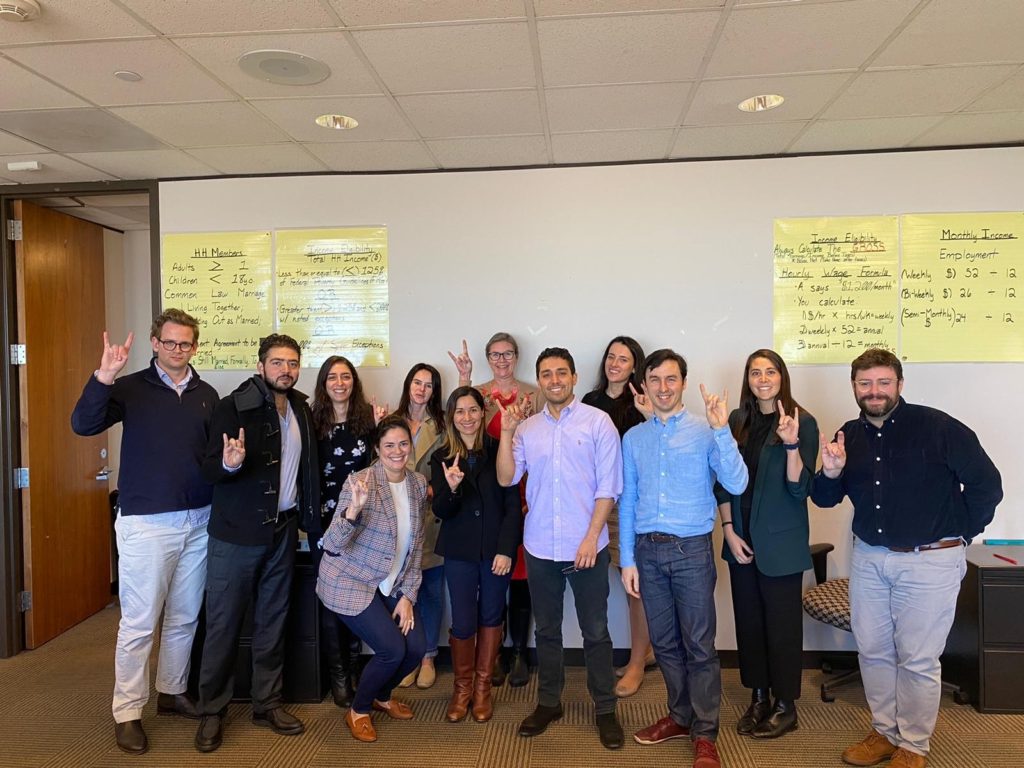We began the day with a boat tour of the Houston Ship Channel, where students learned about the port and maritime industry. They got views of international cargo vessels and operations at the port’s Turning Basin Terminal. After the tour, they attended a presentation/networking lunch with energy and environmental law attorneys at Lone Star Legal Aid. In addition to learning about Lone Star Legal Aid’s environmental justice work relevant to oil and gas, two students offered international and comparative law perspectives on EJ work related to oil and gas in Mexico. We ended the day with a meeting at the Harris County Attorney, where we discussed the civil enforcement of environmental laws and regulations in the Greater Houston Area.
The trip was a resounding success. The boat tour and meetings complemented and enhanced what students are learning in their energy and environmental law courses. The visit also afforded students the opportunity to network with energy and environmental law attorneys, including attorneys at law firms like Mayer Brown LLP and Vinson & Elkins LLP in Houston as well as multinational energy corporations like Chevron during a networking lunch. This networking lunch was sponsored by the Rocky Mountain Mineral Law Foundation, and we are extremely grateful for the Foundation’s support of the Law School, the Institute, and our law students.
According to Texas Law student Mariana Montemayor, “The Houston Energy and Environmental Law Tour was a great experience to understand the complexity of the environmental issues underlying energy generation in Texas. The tour included a visit to the Houston Ship Channel, one of the biggest ports in the U.S., as well as some discussion with environmental litigation professionals. Personally, this experience reinforced the fact that, as energy lawyers, we have the responsibility to actively participate in the transition to more sustainable practices, that will result in a greener society that does not [negatively] affect the most vulnerable in the process of energy development and generation.”


